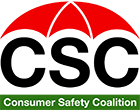
Apr 21, 2017 – 11:38
(Bloomberg Gadfly) — Two big consumer groups engaged in transformative M&A: two disappointments.
Reckitt Benckiser Group Plc, which agreed to buy Mead Johnson Nutrition Co. for $16.6 billion earlier this year, announced flat like-for-like sales expansion on Friday. That is the first time ever that the company has failed to grow.
Danone SA said it would immediately incorporate WhiteWave, the fast-growing dairy alternative maker it snapped up for $10 billion last year, into its like-for-like sales. That’s a deviation from the standard practice of doing so 12 months after a takeover.
But investors have reacted differently. They sent Danone shares down as much as 2.8 percent, the most since November, on concerns that including WhiteWave so soon masked a weak performance from the core dairy business, which has been struggling after a failed revamp of power brand Activia. The damage to Reckitt wasn’t quite as dramatic: the 2.2 percent hit to the stock made it the worst day since February. Danone’s down 2.3 percent over the past year, while Reckitt’s still up 5 percent.
Investors should perhaps be more cautious on Reckitt.
The pair of acquisitions are poles apart. As my colleague Chris Hughes has argued, Danone’s is driven by the need to access fast-growing markets often favored by millennials, who, in the case of WhiteWave, will stomach high prices to avoid GM foods. It’s a fresh spin on the global group’s core business.
On the other hand, Reckitt’s deal takes it into an adjacent category, infant nutrition. That’s a far cry from its perfect-deal hunting ground: consumer health. It had wanted to pick up one of the big pharmaceutical groups’ consumer health businesses. The trouble was, none were available, so CEO Rakesh Kapoor looked elsewhere.
Execution is always crucial, and given the difficult consumer backdrop, neither company can afford to make a mess of these purchases. And each target has its own challenges. Danone did not disclose WhiteWave’s first quarter performance, but said a long window for closing the deal had created “disruption.” As for Reckitt, its foray on to new ground lands it with two muscular competitors, Nestle SA and Danone.
Investors may not have grasped quite how much is as much riding on Reckitt’s purchase.
Kapoor’s star has faded over the past year. He initially achieved the rare feat of succeeding a long-serving predecessor without slipping up. But he has presided over Reckitt slipping back into the pack, rather than outperforming rivals. A scandal over toxic goods in Korea, a disastrous footcare launch and now weak demand in the U.S. have meant that Reckitt can no longer defy gravity. Meanwhile, he has to prove that the Mead Johnson purchase was not borne out of boredom, or worse still, desperation.
Kapoor expects growth to improve later in the year. The company left its forecast of full-year like-for-like sales growth at 3 percent, implying a big step up.
If that doesn’t materialize, there will be even more pressure to make the Mead Johnson deal deliver. But as Danone has shown, there are perils to using acquisitions as a sticking plaster for a weak core business.
Andrea Felsted is a Bloomberg Gadfly columnist covering the consumer and retail industries. She previously worked at the Financial Times.
